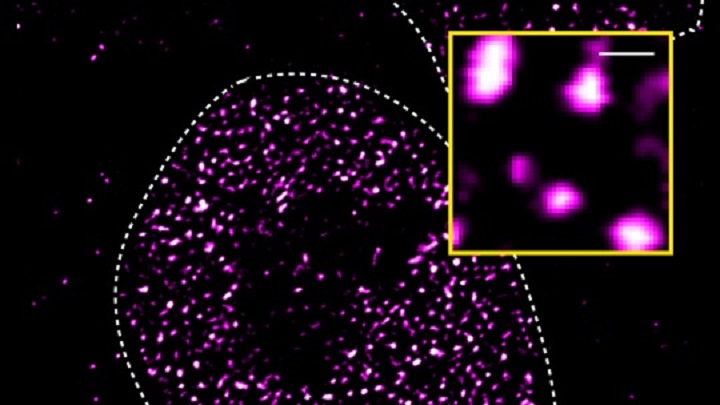Protein condensates open the way to new strategies against prostate cancer

Transcription factors are regulatory proteins that bind to DNA, turn genes on or off, and control the rate at which DNA is transcribed into messenger RNA, which is necessary for protein synthesis. Given their central role in controlling the formation of new proteins, many diseases can be attributed to deregulated transcription factors. In particular, most human oncoproteins are transcription factors, but until now, no drugs have been designed to block them or amplify their effect.

Transcription factors are regulatory proteins that bind to DNA, turn genes on or off, and control the rate at which DNA is transcribed into messenger RNA, which is necessary for protein synthesis. Given their central role in controlling the formation of new proteins, many diseases can be attributed to deregulated transcription factors. In particular, most human oncoproteins are transcription factors, but until now, no drugs have been designed to block them or amplify their effect.
Now, a study published in the journal Nature Structural and Molecular Biology reveals a new approach to block the function of the androgen receptor, a key transcription factor in prostate cancer, based on its propensity to form condensates. The study, which represents an improvement in compounds for the treatment of prostate cancer, is led by researchers at the Institute for Research in Biomedicine (IRB Barcelona) Antoni Riera, Professor at the Faculty of Chemistry of the University of Barcelona, Xavier Salvatella, ICREA Research Professor, Denes Hnisz, member of the Max Planck Institute for Molecular Genetics (Germany), and Marianne D. Sadar, from the University of British Columbia (Canada).
